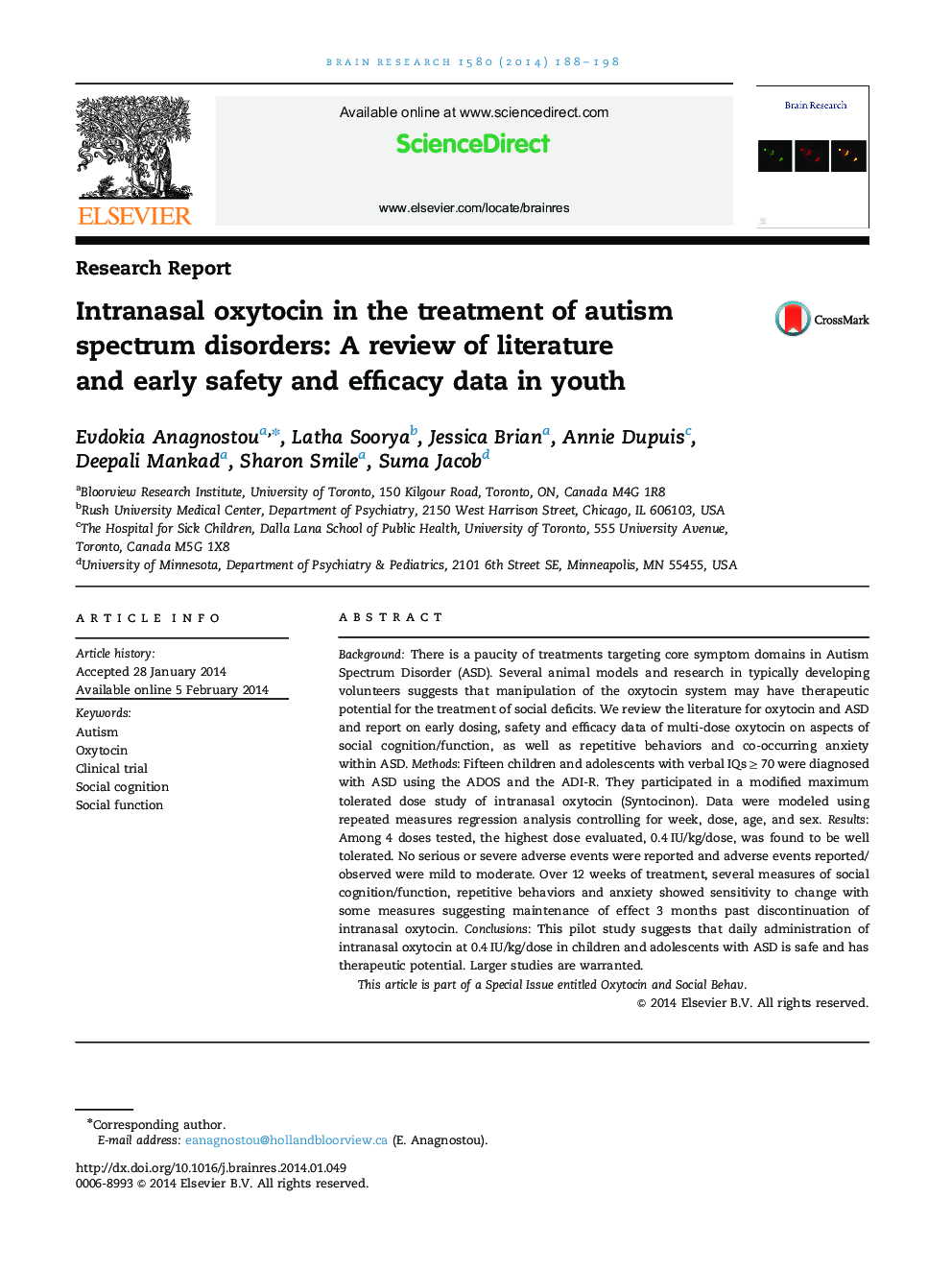| Article ID | Journal | Published Year | Pages | File Type |
|---|---|---|---|---|
| 4324132 | Brain Research | 2014 | 11 Pages |
BackgroundThere is a paucity of treatments targeting core symptom domains in Autism Spectrum Disorder (ASD). Several animal models and research in typically developing volunteers suggests that manipulation of the oxytocin system may have therapeutic potential for the treatment of social deficits. We review the literature for oxytocin and ASD and report on early dosing, safety and efficacy data of multi-dose oxytocin on aspects of social cognition/function, as well as repetitive behaviors and co-occurring anxiety within ASD. Methods: Fifteen children and adolescents with verbal IQs≥70 were diagnosed with ASD using the ADOS and the ADI-R. They participated in a modified maximum tolerated dose study of intranasal oxytocin (Syntocinon). Data were modeled using repeated measures regression analysis controlling for week, dose, age, and sex. Results: Among 4 doses tested, the highest dose evaluated, 0.4 IU/kg/dose, was found to be well tolerated. No serious or severe adverse events were reported and adverse events reported/observed were mild to moderate. Over 12 weeks of treatment, several measures of social cognition/function, repetitive behaviors and anxiety showed sensitivity to change with some measures suggesting maintenance of effect 3 months past discontinuation of intranasal oxytocin. Conclusions: This pilot study suggests that daily administration of intranasal oxytocin at 0.4 IU/kg/dose in children and adolescents with ASD is safe and has therapeutic potential. Larger studies are warranted.This article is part of a Special Issue entitled Oxytocin and Social Behav.
